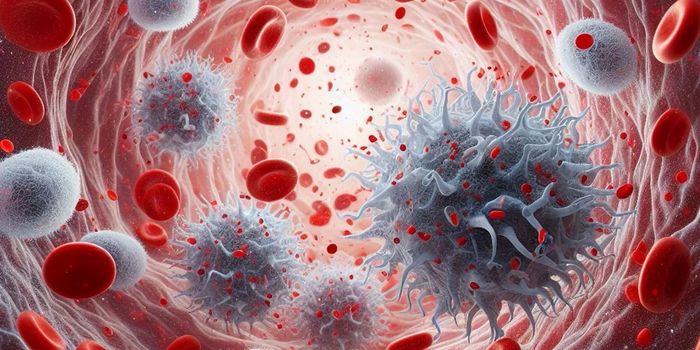Why some cancers receive more research funding
In a new study from Northwestern Medicine, researchers analyzed which types of cancer receive the most and least amounts of research funding. Their results show that many of the most common and lethal cancers are not getting their fair share of funding. The study was published in Journal of the National Comprehensive Cancer Network.
The researchers are quick to clarify their intentions with this investigation. "The goal of this study is not to divert funds away from cancers that are well-supported, but rather expand funding for other cancers that aren't getting enough support currently," said corresponding author Dr. Suneel Kamath, from the Northwestern University Feinberg School of Medicine. "These are all deadly and life-altering diseases that deserve our attention and support."
In order to come up with their findings, the team looked at the distribution of nonprofit research funding in the US in 2015 across cancer types. They analyzed IRS tax records from October 2017 and February 2018, looking for any nonprofit organizations that supports any kind of cancer and earned a minimum of $5 million in annual revenue for 2015. This search generated 119 organizations that had a total of $5.98 billion in annual revenue, $4.59 billion of which went cancer charities not specified to a specific type.
For the remaining difference of annual revenue that was specified for particular kinds of cancer, the team then determined the proportionality of the received funding with each type of cancer’s number of new cases, number of deaths and number of years of life lost. They found that proportionally, colon, endometrial, liver and bile duct, cervical, ovarian, pancreatic and lung cancers were all poorly funded given how common they are and how many deaths they cause; meanwhile, breast cancer, leukemia, lymphoma and pediatric cancers were all well-funded given those factors.
Dr. Kamath hypothesizes that "Shame and discomfort with talking about our bowels and 'private parts' may be reducing funding for diseases like colon or endometrial cancer." The authors add that other cancers like lung and liver cancer, which are often associated with a stigmatized behavior (smoking and drinking), were also all poorly funded.
"Well-funded patient advocacy organizations should be applauded for their successes," said co-author Dr. Sheetal Kircher, who is an oncologist at Northwestern Medicine. "We hope to bring awareness to the organizations with less relative funding so we can collaborate to improve funding and outcomes for all patients with cancer."
Sources: Science Daily, Journal of the National Comprehensive Cancer Network









